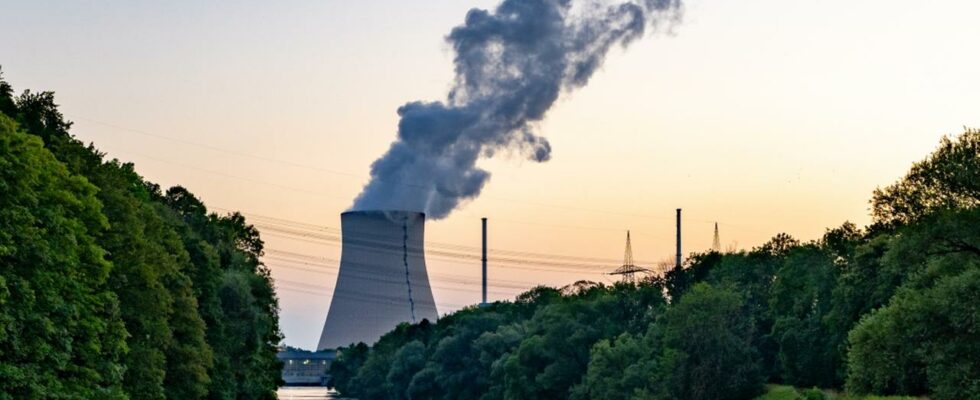All nuclear power plants in Germany have been shut down since 2023. Could the power plants have been able to run for longer? The Union wants to examine this question in a committee of inquiry. It accuses the Greens of having played party politics.
The Union wants to clarify the circumstances of the nuclear phase-out in a committee of inquiry. The main focus will apparently be on the role of Economics Minister Robert Habeck (Greens). According to a draft of the necessary Bundestag resolution, which was made available to the Reuters news agency, the aim is to investigate how the decisions on the nuclear phase-out were made and how parliament and the public were informed.
The parliamentary manager of the CDU/CSU parliamentary group, Thorsten Frei, said that they wanted a constitutive meeting of the new “Habeck files” committee before the summer break. The group would agree to a corresponding proposal by CDU leader Friedrich Merz and CSU regional group leader Alexander Dobrindt.
Accusation: Decision made according to Green Party politics
The Bundestag must set up a committee of inquiry if at least a quarter of the members request it. With 733 members, this means that at least 184 parliamentarians must vote for the committee of inquiry. The Union has 195 seats in the Bundestag.
“The information available to us forces us to conclude that the federal government has decided on a crucial issue of our national energy security not for the good of Germany, but solely according to the logic of green party politics,” says a letter from Merz and Dobrindt to the parliamentary group.
Environment Minister Lemke reacts calmly
Federal Environment Minister Steffi Lemke (Greens) reacted calmly to the announcement. “It is of course the opposition’s right to set up such an investigative committee,” she said in German RadioHowever, the decision made in 2022 to keep the three remaining nuclear power plants (NPPs) on the grid for only three and a half months longer was “transparent and publicly comprehensible”. The government had “repeatedly examined the matter with an open mind”.
The three nuclear power plants that were still connected to the grid in Germany were actually supposed to be shut down at the end of 2022. However, when gas supplies from Russia were initially throttled and later stopped in 2022, the federal government decided to extend the operating times of the three power plants until mid-April 2023.
The Greens had long resisted such a step, but finally supported the concept of a temporary operational reserve for two of the last three German nuclear power plants presented by Habeck and the nuclear power plant operators in September 2022. The FDP was fundamentally in favor of a longer term. In October 2022, Chancellor Olaf Scholz (SPD) then spoke out in favor of the continued operation of all three reactors until spring.
The German nuclear phase-out was first negotiated in 2000 by the then red-green government under Chancellor Gerhard Schröder and approved by the Bundestag in 2002. In 2011, the then black-yellow federal government under Chancellor Angela Merkel (CDU) decided to phase out nuclear energy in Germany after the nuclear disaster in Fukushima, Japan. This meant that the extension of the operating period that had been approved in autumn 2010 was withdrawn.

